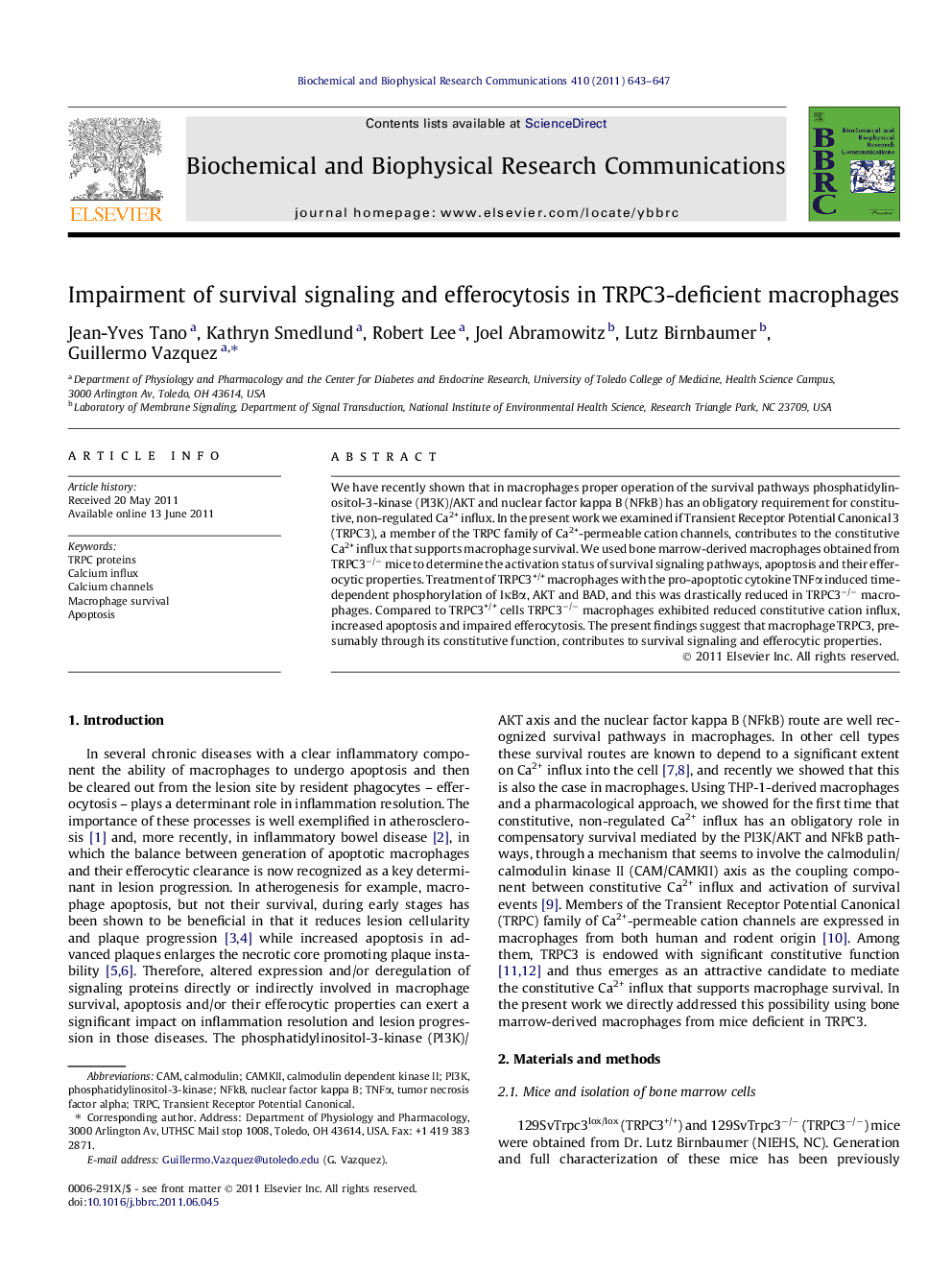| Article ID | Journal | Published Year | Pages | File Type |
|---|---|---|---|---|
| 1930548 | Biochemical and Biophysical Research Communications | 2011 | 5 Pages |
We have recently shown that in macrophages proper operation of the survival pathways phosphatidylinositol-3-kinase (PI3K)/AKT and nuclear factor kappa B (NFkB) has an obligatory requirement for constitutive, non-regulated Ca2+ influx. In the present work we examined if Transient Receptor Potential Canonical 3 (TRPC3), a member of the TRPC family of Ca2+-permeable cation channels, contributes to the constitutive Ca2+ influx that supports macrophage survival. We used bone marrow-derived macrophages obtained from TRPC3−/− mice to determine the activation status of survival signaling pathways, apoptosis and their efferocytic properties. Treatment of TRPC3+/+ macrophages with the pro-apoptotic cytokine TNFα induced time-dependent phosphorylation of IκBα, AKT and BAD, and this was drastically reduced in TRPC3−/− macrophages. Compared to TRPC3+/+ cells TRPC3−/− macrophages exhibited reduced constitutive cation influx, increased apoptosis and impaired efferocytosis. The present findings suggest that macrophage TRPC3, presumably through its constitutive function, contributes to survival signaling and efferocytic properties.
► We examined the role of TRPC3 channel in macrophage survival, apoptosis and efferocytic properties. ► TRPC3-deficient macrophages exhibit impaired survival signaling, increased apoptosis and impaired efferocytosis. ► These findings suggest that macrophage TRPC3 is an essential component for macrophage survival and clearance of apoptotic cells.
